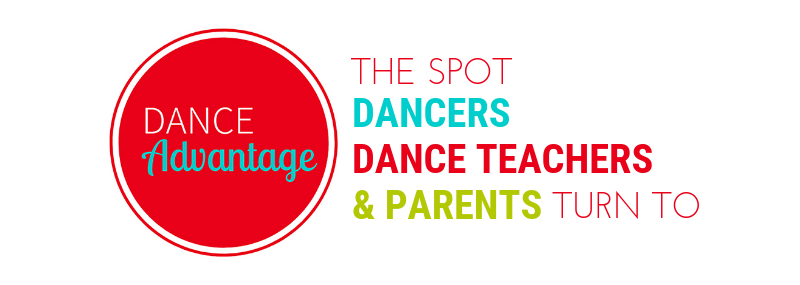This is a continuation of Part I of How to Conduct Yourself as a Professional which dealt with leadership, positive attitude, and work ethic.
Generosity

When I think of someone that displays ultimate professionalism, I see a person who is generous with their gifts, generous with their time, and generous in spirit. This person is easy to collaborate with because he/she communicates with kindness. This professional wants everyone around them to be their best and helps them to do so by being supportive and encouraging. When a colleague is struggling, this person does not belittle or put her down. He/she is aware enough to look for moments in which they can offer help that will not be embarrassing to the individual or interrupt the rest of the group. And, help does not always mean showing or telling another how to do something. Often an encouraging smile or a word or two that will lighten the person’s mood and frustration level is most helpful. Also, being generous does not mean that you must lie to make another person feel good. A professional still tells it like it is but avoids hurting other people in the process. A generous and professional performer, collaborator, or contributor brings out the best in others because instead of focusing on I and me, a generous person concentrates on we and us.
Awareness of one’s surroundings and the other people in them is important but a professional must also be self-aware. Generosity can be extended to oneself by understanding one’s strengths, weaknesses, and limitations. No one is perfect, and a confident and self-aware person does not expect perfection of himself or of anyone else, rather he does his very best, recognizes where the strengths of others can fill in the gaps, and allows them to shine as they do their part. It is alright to ask others to do their best but never expect of someone else what you can’t expect of yourself. After all, you can’t lead others until you lead yourself. Offer encouragement and lead them through example to fulfillment of their full potential. I was once told that you are only worth what you give away. And you can only give away what you have. So, improve what you have to give by taking responsibility for what you know and then give it away.
When you’ve been wronged
Inevitably, someone will disappoint you, hurt you, or do something that is unfair or unjust. It happens. And, sometimes the results are catastrophic, the pain is tremendous, and the offender seems to hold a Get Out of Jail Free card. Trust me, everyone faces this at some point in their professional career and/or personal lives. A professional acts with dignity in response to these situations. It is tempting to want to lash out or get revenge, but a true professional does not reduce herself to bad behavior because she knows that this is sure to backfire. For example, if a coworker complains and whispers about a peer at every opportunity and spreads rumors and gossip, would you ever trust him/her? It does not matter if the complaints and rumors are true, I guarantee that even those that go along or participate in this slander don’t trust your coworker farther than they can be thrown. A person who goes about tearing down others is only opening themselves up to the same kind of scrutiny and backstabbing and is not someone that anyone would want to work with. Who needs the drama and negativity that this person dishes out? No matter what has been done to her, a professional will always be the better person. He/she will take action through appropriate channels instead of dealing out their own form of justice.
When you’re the one who has wronged
As I said before, no one is perfect. Even professionals have a bad day in which they do, say, or act in a way that is not only unprofessional but unbecoming. I am no different. Once in rehearsal for a musical for which I was not only the choreographer but a leading character, I very publicly blew my top at a director. It was tech rehearsal, the cast and crew were tired from both building sets plus all the long hours of rehearsal, and we were running well-rehearsed scenes instead of jumping cue to cue (as is usually done during a technical rehearsal before the open of a show). Essentially my professionalism went out the window for a moment as I attempted to express the collective frustration that was reaching boiling level within the room. It was an outburst I immediately regretted, although it got results. As a professional, however, I recognized that I did not handle the situation well and that an apology was in order. After giving the director a few moments, I approached him and calmly apologized for my behavior and that it would not happen again. If I had not performed this simple act, the relationship would have been damaged and I would have lost the respect he held for me because resentment would have had time to set in. Being mature enough to recognize when you are out of line, say you’re sorry, and take responsibility for yourself is an important and necessary trait in someone that wants to continue to be viewed as a professional even when mistakes are made.
Final Thoughts
It is not always easy to conduct oneself as a professional but it leads to more positive and fulfilling experiences overall. A negative person creates a negative world around themselves. Positive and professional leaders have good things happen to them because they are prepared to take the bad things that happen in stride. They cannot and will not play the victim. Instead, they motivate others to join them in their outlook.
Also, age is not a factor in professionalism. I’ve met both very unprofessional people who have spent years and years in their career and amazingly mature children who act professionally whether they get paid to do so or not.
Fears and insecurities can damage a person’s ability to think positively, act with generosity, and conduct themselves appropriately. When dealing with someone who is behaving unprofessionally, considering this helps me to deal with him/her in a more compassionate manner. Again, this doesn’t mean I won’t give it to them straight, but it does allow me to avoid behaving badly in reaction.
The ultimate question to ask yourself if you are uncertain if you’ve conducted yourself professionally is…
Would YOU want to work with YOU?
If not, take responsibility for your actions and work to be your best in all areas. I guarantee the attitudes of the people around you will improve because their perception of you will have changed. You will be regarded as the professional you want to be.
What are other qualities that define a consumate professional?
What are some examples of professionalism or unprofessionalism that you have witnessed?
Would you work with someone who had behaved unprofessionally again? – TAKE THE POLL!!
Nichelle Suzanne is a writer specializing in dance and online content. She is also a dance instructor with over 20 years experience teaching in dance studios, community programs, and colleges. She began Dance Advantage in 2008, equipped with a passion for movement education and an intuitive sense that a blog could bring dancers together. As a Houston-based dance writer, Nichelle covers dance performance for Dance Source Houston, Arts+Culture Texas, and other publications. She is a leader in social media within the dance community and has presented on blogging for dance organizations, including Dance/USA. Nichelle provides web consulting and writing services for dancers, dance schools and studios, and those beyond the dance world. Read Nichelle’s posts.

